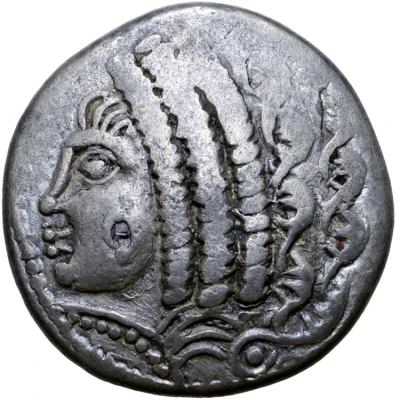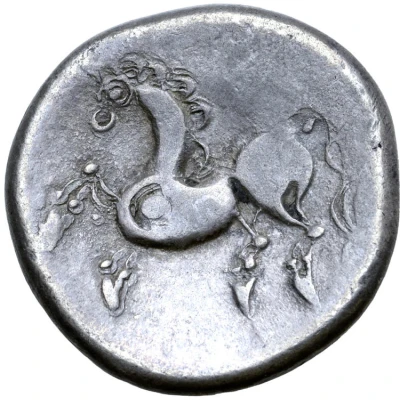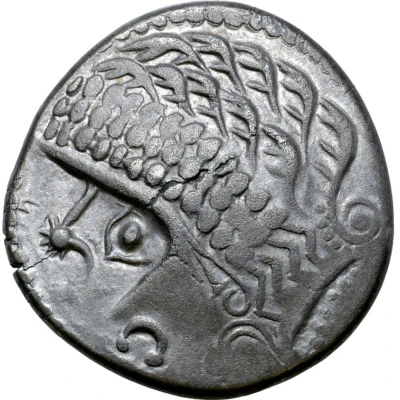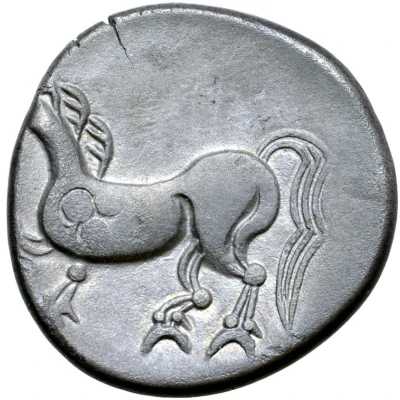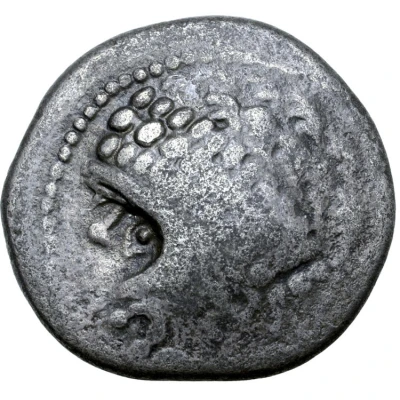
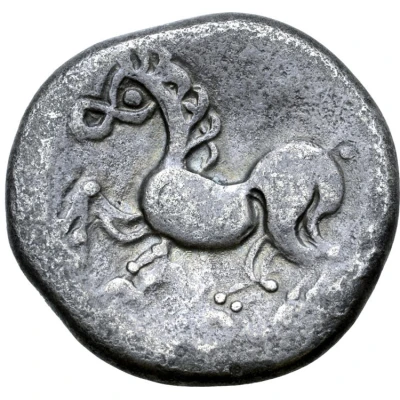

© Roma Numismatics Limited
Tetradrachm Gjurgjevac Type 200 BC - 1 BC
| Silver | 10.19 g | 22 mm |
| Issuer | East Noricum (Kingdom of Noricum) |
|---|---|
| Type | Standard circulation coin |
| Years | 200 BC - 1 BC |
| Value | Tetradrachm (4) |
| Currency | Drachm |
| Composition | Silver |
| Weight | 10.19 g |
| Diameter | 22 mm |
| Shape | Round (irregular) |
| Technique | Hammered |
| Orientation | Variable alignment ↺ |
| Demonetized | Yes |
| Updated | 2024-10-09 |
| Numista | N#192438 |
|---|---|
| Rarity index | 97% |
Reverse
Horse prancing to left.
Comment
Göbl, TKN pl. 26, 22;Examples of this type:
• Example #1 (10.19g, 24mm, 6h, Very Fine):
◦ Ex-Hermann Lanz Collection; published in Michaela Kostial - "Kelten im Osten. Gold und Silber der Kelten in Mittel und Osteuropa, Sammlung Lanz", München, 1997, #177;
◦ Auctioned by Roma Numismatics Ltd, Auction XVII, 28 March 2019, Lot 68. Sold for 260 GBP.
◦ Auctioned by Numismatik Lanz München, Auction 24, 25 April 1983, lot 4.
Interesting fact
The Tetradrachm coin from East Noricum (Kingdom of Noricum) was used as a form of currency during the 200 BC - 1 BC time period. It was made of silver and weighed 10.19 grams. One interesting fact about this coin is that it features an image of a mythical creature called a "Gorgoneion" on one side, which was a common symbol used in ancient Greek and Roman mythology. The Gorgoneion was a depiction of a woman's head with snakes for hair, and was often used to ward off evil spirits. This coin is a unique example of how mythology and currency were intertwined in ancient cultures.
